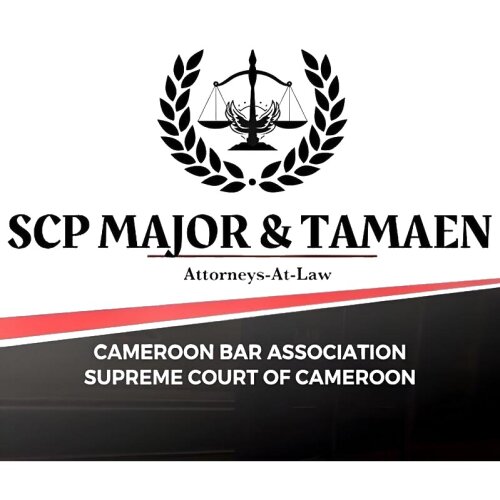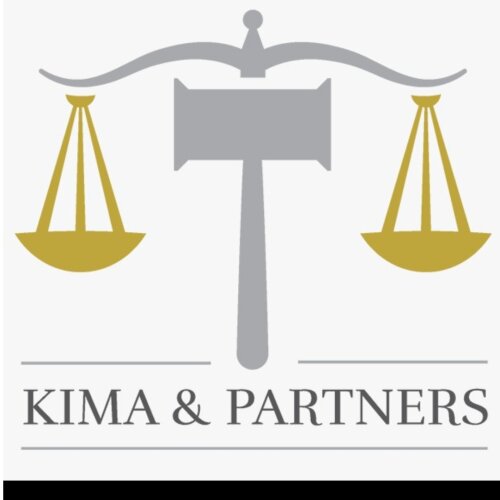Best Sustainable Finance Lawyers in Yaoundé
Share your needs with us, get contacted by law firms.
Free. Takes 2 min.
List of the best lawyers in Yaoundé, Cameroon
About Sustainable Finance Law in Yaoundé, Cameroon
Sustainable finance refers to the process of considering environmental, social, and governance (ESG) criteria in financial investments and decision-making. In Yaoundé, Cameroon, the sustainable finance sector is emerging as businesses, investors, and regulators seek to align financial growth with positive environmental and social impact. The purpose of sustainable finance law is to ensure that financial activities support long-term sustainability goals, including climate change mitigation, responsible investment, and social inclusion. Legal frameworks are evolving to support green bonds, responsible lending, and corporate social responsibility, reflecting both international standards and local realities.
Why You May Need a Lawyer
There are several situations where individuals, businesses, or organizations may require legal help in the field of sustainable finance in Yaoundé, Cameroon. These include:
- Setting up a green or social enterprise and ensuring compliance with local and international standards
- Navigating complex regulatory requirements for issuing or investing in green bonds or other sustainable financial instruments
- Drafting and reviewing contracts or memoranda of understanding for sustainability projects
- Securing environmental permits or social licenses to operate
- Resolving disputes between project stakeholders, such as community groups and developers
- Seeking public funding or private investment for sustainable projects
- Protecting intellectual property related to green technology or sustainable innovations
- Ensuring responsible supply chain management and compliance with ESG standards
A lawyer specialized in sustainable finance can help you navigate these challenges, avoid pitfalls, and ensure your projects are legally sound and socially responsible.
Local Laws Overview
Yaoundé, as Cameroon’s political capital, is governed by national laws supplemented by regional and municipal regulations. Key local laws and regulations relevant to sustainable finance include:
- CEMAC regulations, as Cameroon is part of the Central African Economic and Monetary Community, influencing banking and financial sector oversight
- The Environmental Management Framework Law (Law No. 96/12 of 5 August 1996), regulating environmental protection and sustainable development initiatives
- Bank of Central African States (BEAC) guidelines, especially concerning green bonds or environmental lending
- Investment Code and incentives for environmentally sustainable projects
- Public procurement regulations, incorporating sustainability criteria for government contracts
- Company Law requirements for reporting on sustainability and corporate social responsibility
- International agreements ratified by Cameroon, such as the Paris Agreement and various United Nations conventions impacting ESG compliance
These laws create a complex landscape that any stakeholder in sustainable finance must understand to ensure legal compliance and effective project delivery.
Frequently Asked Questions
What is sustainable finance?
Sustainable finance involves financing and investment decisions that take into account environmental, social, and governance (ESG) factors, aiming to foster long-term economic growth while ensuring positive outcomes for society and the environment.
Is there a legal requirement for companies in Yaoundé to follow ESG standards?
While Cameroon is gradually integrating ESG standards into business practices, certain sectors such as banking, energy, and infrastructure are increasingly subject to ESG requirements through local laws and international obligations.
What legal frameworks support green bonds in Cameroon?
BEAC guidelines and CEMAC regulations govern the financial sector, including the issuance of green bonds. Local environmental laws also apply, especially if the financed projects have ecological impacts.
Do I need special permits for a sustainable finance project?
Yes, depending on the type of project and sector. Environmental and social impact assessments are often legally required, along with operating permits from relevant authorities.
What are the penalties for failing to comply with sustainable finance laws?
Penalties can include fines, project suspension, withdrawal of permits, legal action from affected parties, and reputational damage.
Can foreign investors participate in sustainable finance projects in Yaoundé?
Yes, but they must comply with Cameroonian investment and environmental laws, as well as any sector-specific regulations. Legal advice can help navigate the requirements efficiently.
Are there incentives for investing in sustainable projects?
The Cameroonian Investment Code provides various fiscal and customs incentives for projects that demonstrate environmental or social impact, especially in energy, water, and agro-industry.
What role do local communities play in sustainable finance in Yaoundé?
Local communities are key stakeholders. Laws may require public participation in environmental assessments, and community consent or consultation is often needed for social license to operate.
Are non-governmental organizations involved in sustainable finance regulations?
NGOs can play advisory and supervisory roles, support community engagement, and help monitor project compliance with standards, but enforcement remains primarily the responsibility of government agencies.
How can I resolve a legal dispute in a sustainable finance project?
Disputes can be resolved through negotiation, mediation, arbitration, or litigation. Legal experts can recommend the best approach based on the nature of the dispute and contractual arrangements.
Additional Resources
If you are seeking more information or support, consider reaching out to these institutions and organizations:
- Ministry of Environment, Protection of Nature and Sustainable Development (MINEPDED)
- Bank of Central African States (BEAC)
- Cameroon Investment Promotion Agency (CIPA)
- National Agency for Investment Promotion (Agence de Promotion des Investissements)
- Central African Stock Exchange (BVMAC)
- Local bar associations and chambers of commerce
- International and national NGOs focused on sustainable development and finance
These resources can provide guidelines, technical support, and up-to-date information on sustainable finance opportunities and challenges in Yaoundé.
Next Steps
If you believe you need legal assistance in sustainable finance, here is how to proceed:
- Identify your specific needs, such as project setup, compliance, permitting, or investment sourcing
- Gather relevant documents, including business plans, environmental studies, contracts, and correspondence with authorities
- Seek referrals for legal professionals experienced in sustainable finance and ESG compliance in Yaoundé
- Contact a lawyer for an initial consultation to discuss your situation and understand your legal obligations
- Work with your lawyer to develop a compliance strategy, contract templates, or dispute resolution plan as required
- Stay informed about changes in local and international sustainable finance regulations that may affect your business
Getting the right legal advice helps ensure your sustainable finance project meets all regulatory requirements, aligns with best practices, and achieves its environmental and social objectives in Cameroon.
Lawzana helps you find the best lawyers and law firms in Yaoundé through a curated and pre-screened list of qualified legal professionals. Our platform offers rankings and detailed profiles of attorneys and law firms, allowing you to compare based on practice areas, including Sustainable Finance, experience, and client feedback.
Each profile includes a description of the firm's areas of practice, client reviews, team members and partners, year of establishment, spoken languages, office locations, contact information, social media presence, and any published articles or resources. Most firms on our platform speak English and are experienced in both local and international legal matters.
Get a quote from top-rated law firms in Yaoundé, Cameroon — quickly, securely, and without unnecessary hassle.
Disclaimer:
The information provided on this page is for general informational purposes only and does not constitute legal advice. While we strive to ensure the accuracy and relevance of the content, legal information may change over time, and interpretations of the law can vary. You should always consult with a qualified legal professional for advice specific to your situation.
We disclaim all liability for actions taken or not taken based on the content of this page. If you believe any information is incorrect or outdated, please contact us, and we will review and update it where appropriate.











